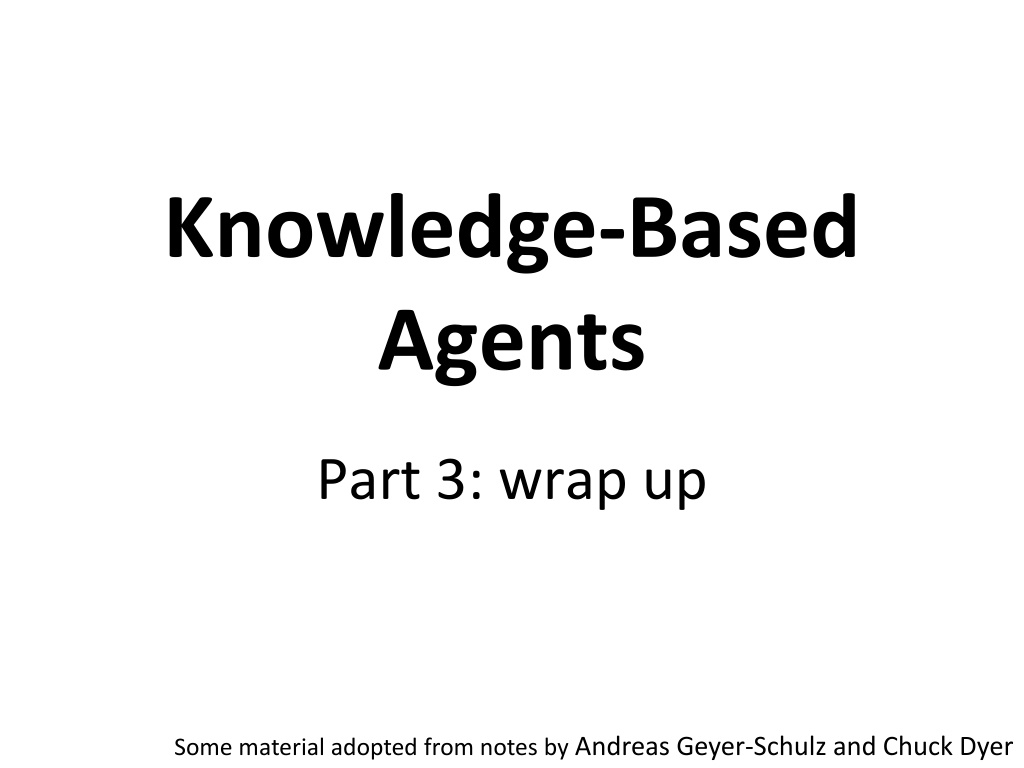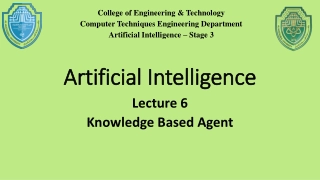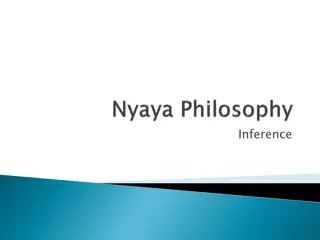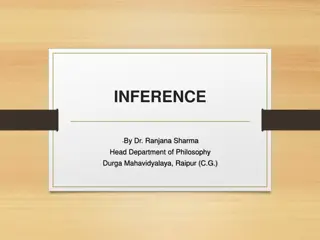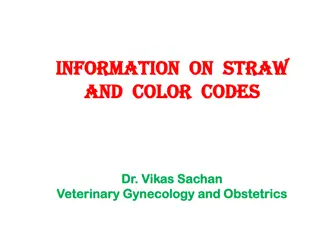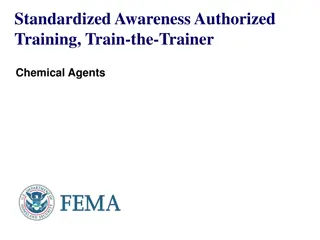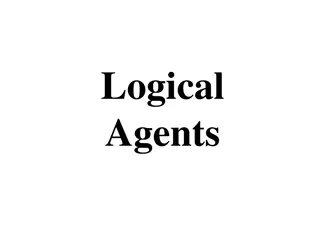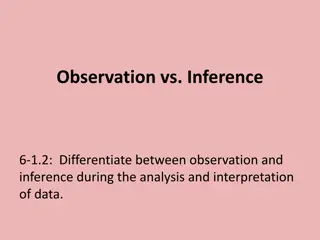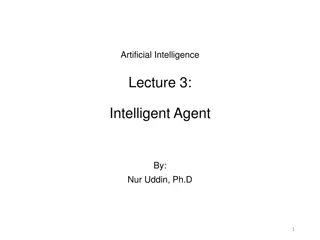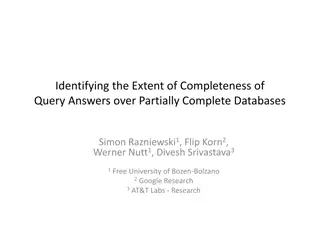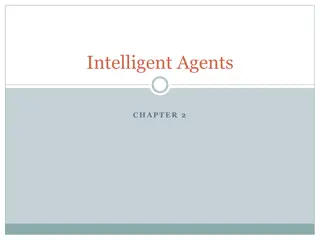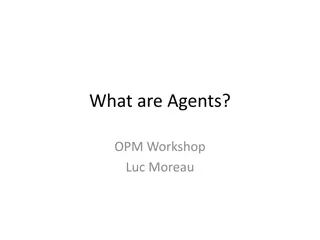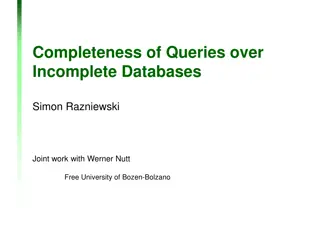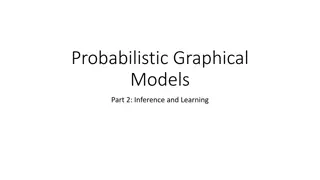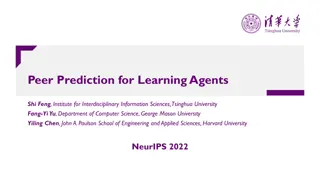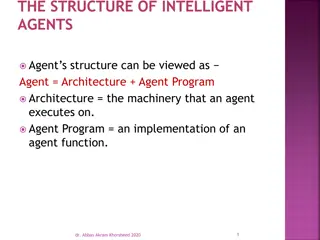Understanding Knowledge-Based Agents: Inference, Soundness, and Completeness
Inference, soundness, and completeness are crucial concepts in knowledge-based agents. First-order logic allows for expressive statements and has sound and complete inference procedures. Soundness ensures derived sentences are true, while completeness guarantees all entailed sentences are derived. Agents rely on logical sentences for reasoning without direct access to the world, emphasizing the importance of sound reasoning. Knowledge-based agents store information in a knowledge base, utilize an inference mechanism, and make decisions based on inferred actions using a representation language that defines sentence structure and semantics.
Download Presentation

Please find below an Image/Link to download the presentation.
The content on the website is provided AS IS for your information and personal use only. It may not be sold, licensed, or shared on other websites without obtaining consent from the author. Download presentation by click this link. If you encounter any issues during the download, it is possible that the publisher has removed the file from their server.
E N D
Presentation Transcript
Knowledge-Based Agents Part 3: wrap up Some material adopted from notes by Andreas Geyer-Schulz and Chuck Dyer
Inference, Soundness, Completeness KB i = sentence can be derived from KB by procedure i Soundness:i is sound if whenever KB i , it is also true that KB Completeness:i is complete if whenever KB , it is also true that KB i Preview: first-order logic is expressive enough to say almost anything of interest and has a sound and complete inference procedure
Soundness and completeness A sound inference method derives only entailed sentences Analogous to the property of completeness in search, a complete inference method can derive any sentence that is entailed
No independent access to the world Reasoning agents often gets knowledge about facts of the world as a sequence of logical sentences and must draw conclusions only from them w/o independent access to world Thus, it is very important that the agents reasoning is sound!
Summary Intelligent agents need knowledge about world for good decisions Agent s knowledge stored in a knowledge base (KB) as sentences in a knowledge representation (KR) language Knowledge-based agents needs a KB & inference mechanism. They store sentences in KB, infer new sentences & use them to deduce which actions to take A representation language defined by its syntax & semantics, which specify structure of sentences & how they relate to facts of the world Interpretation of a sentence is fact to which it refers. If fact is part of the actual world, then the sentence is true
Fin Fin 6
